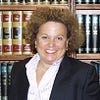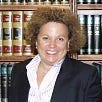Wi-Fi Blocking: In 3 Words, 'Don't Do It'Wi-Fi Blocking: In 3 Words, 'Don't Do It'
Federal law prohibits jamming of wireless signals -- and recent FCC actions make clear the agency is not messing around with perpetrators.
November 12, 2015

Federal law prohibits jamming of wireless signals -- and recent FCC actions make clear the agency is not messing around with perpetrators.
Can't get your hotspot to work in a hotel or conference center? That's a problem the Federal Communications Commission (FCC) is interested in hearing about. Willful or malicious interference with Wi-Fi hot spots, often known as "jamming," is illegal, and perpetrators of these bad acts -- regardless of purpose -- will pay dearly. Period.
The FCC last week issued an Enforcement Advisory regarding two separate jamming problems. In the first instance, Wi-Fi interference not only occurred, but also was achieved (a dubious distinction to be sure) beyond the property where the jam was intended. In the second case, the problem was -- and continues to be -- the perpetrator's lack of response to FCC queries about jamming at its properties. The cases are different, but the take-away is the same. Don't do it, and don't let your company/clients/friends do it.

Fun Fact
Film actress Hedy Lamarr, along with avant-garde musician George Antheil, held the first U.S. anti-jamming-related patent, that being for the most widely used type of anti-jamming processes currently in use -- frequency hopping spread spectrum technology.





